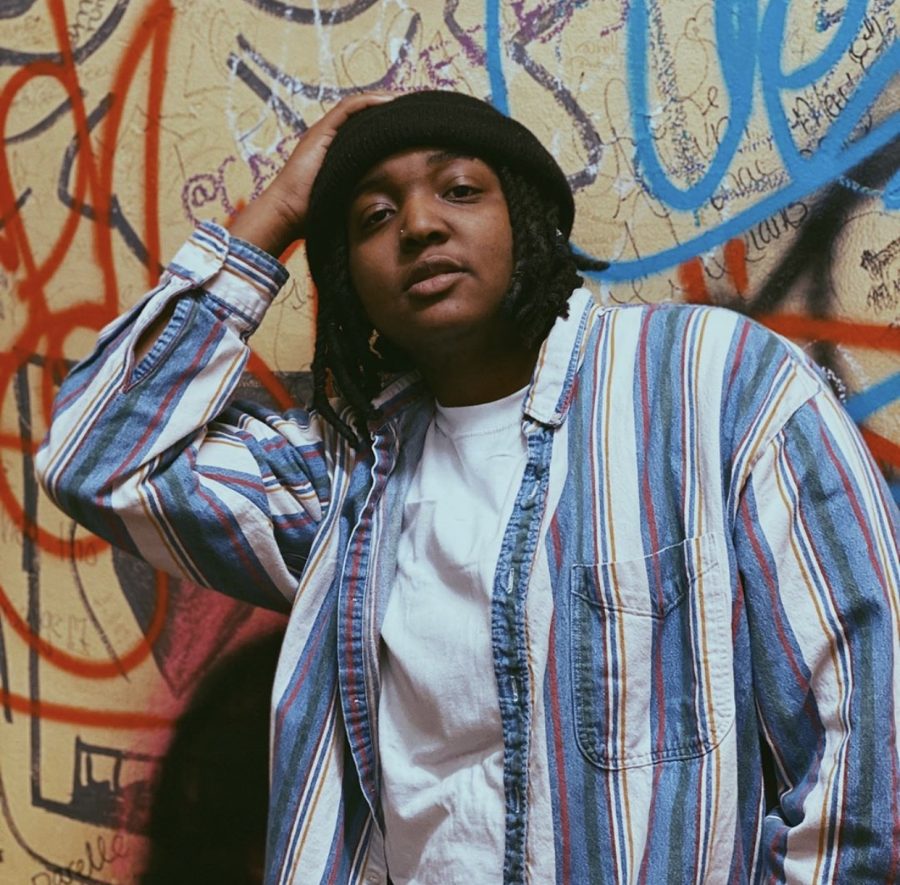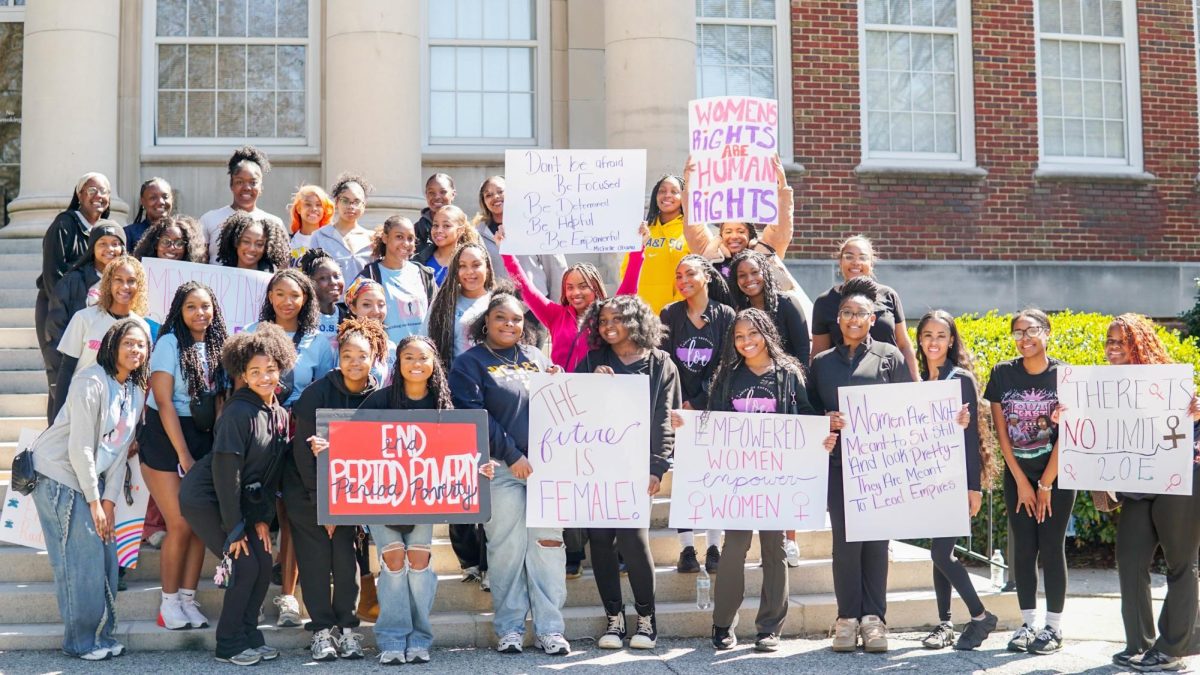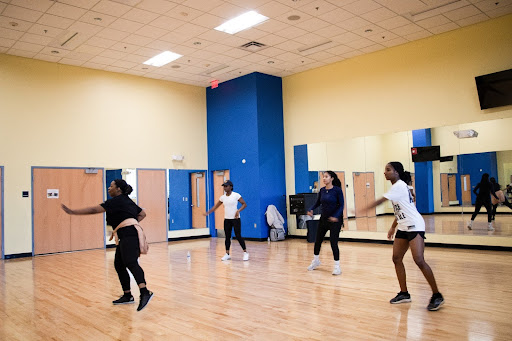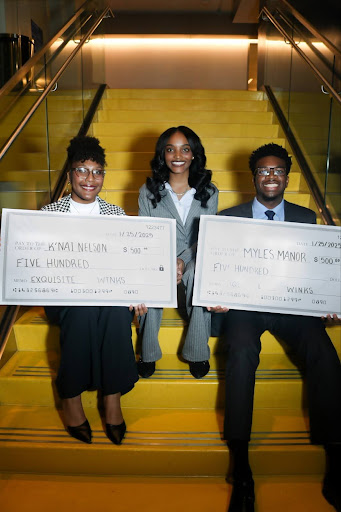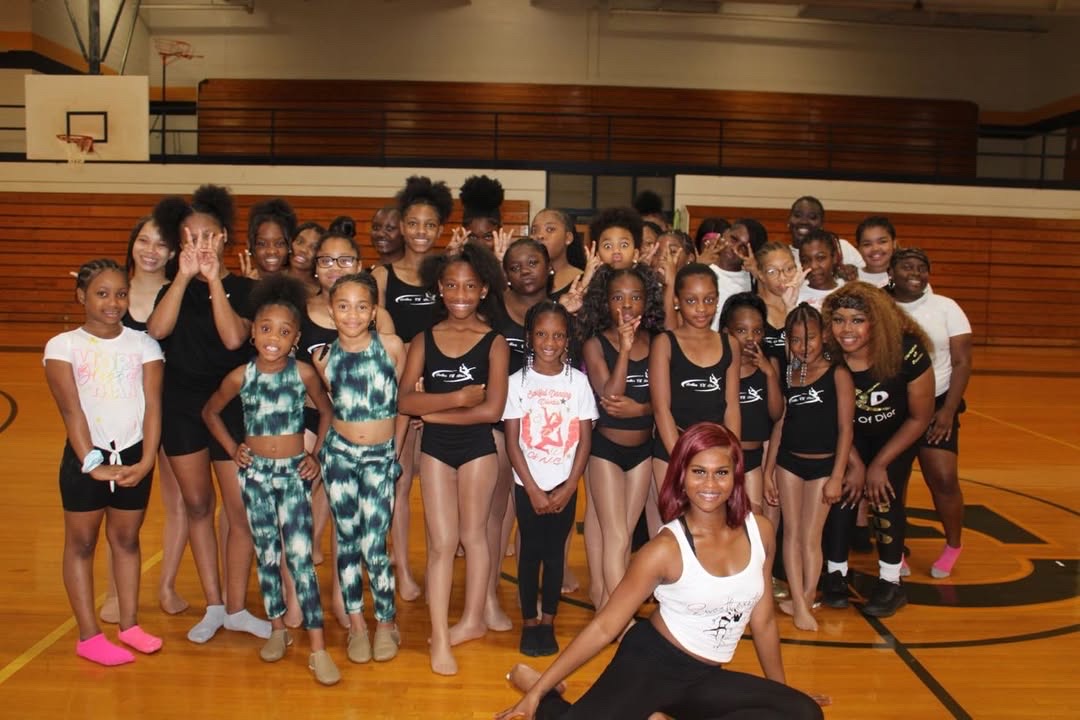Inspired by the insurgence of LGBT+ hip-hop artists in mainstream music, N.C. A&T senior multimedia journalism student Damien Bell is constantly reinventing what it means to be an LBGT+ artist that stands on transparency, vulnerability and the nerve to fully stand in his own truth.
Bell was born in Durham, N.C., but moved to Alexandria, Va. at the age of 6, because his mother wanted better for him and his older brother. Growing up his mother was a poet, which laid a foundation for her children to be real lovers of the arts.
“We were very heavily involved in the music and poetry scene that was going on in D.C. at the time,” Bell said. “We would go to different slams—And [I would be in] different kinds of open mics…[My mom] would push me and my brother to get on stage and have us introduce people, as she would let us host [sometimes] and have us perform on nights that she was hosting.”
From then on, Bell forged his own path—by junior high school, he was involved in various plays, hosting talent shows, and learning guitar. Each talent was prepping Bell, unbeknownst to him, on how to become an artist.
Another Melodrama: Before the Fall, one of Bell’s first projects, was released in 2018. At the time of its release, he had the opportunity to perform at several on-campus events—and with time, he started getting recognized by his peers.
“I released my first mixtape, Another Melodrama: Before the Fall, on Apple Music when I first got to campus. When I first started performing, I was doing a lot of love songs from that album. So just going around performing, I started to build a name for myself on campus—as far as people coming up to me and saying “Hey! I’ve seen you perform, you’re really good!”
In this week’s “Behind the music,” Bell and I discussed his personal struggles and how those same struggles have made him into a better person—and into an even better artist.
Have you ever been self-reflective in your music? Also, how much would you say you’ve grown—from releasing your first album, Another Melodrama: Before the Fall, to where you are now?
Damien: “I am a big person on self-reflection, especially in music, so I feel like it is very great to see. I feel like it’s my favorite thing to do, and the reason why I love [it] and music so much is because I’m able to document my life in [my songs]. I’m basically writing my own soundtrack.”
“For me, I’ve seen a lot of growth—especially within the topics I am able to explore and talk about now, [whereas] on the first project I released when I came to school, I was very much exploring things that I knew people liked already and have had personal experiences with.
“As I’ve grown and gotten older, I have found other ways to go deeper into myself through music and also help other people at the same time. The songs that I am the most insecure about… are the songs people hit me up the most about and are like “Man, I really enjoyed this song. Thank you for putting this out.” That gives me the strength to be like, “Okay. I’m really making a difference. I’m touching the people the way that I want to. That’s very important to me.”
You spoke about your insecurities, and how your audience would often connect most to the songs you felt the most insecure about. What song(s) would you say was the most raw, personal and challenging for you to release—songs that felt the most freeing but at the same time kind of had you in a state of anxiety (because you’re being so personal)?
Damien: “There is this song that I actually released recently called “Lotus Man” and it’s about me feeling alone, and I’m literally being very vulnerable on the song because I’m talking about feeling lonely in myself.”
“I feel like loneliness isn’t something that we talk about as humans in depth because we’re very social creatures –I feel as though loneliness isn’t very commonly talked about as far as how we personally view loneliness and this something I focus on in my music.”
“Another song is 395… that’s the song where I talk about being [transsexual] and I talk about my childhood and about my dad not being there. I talk about all of these traumatic experiences that happened in my life and how these experiences set me up to be where I am now.”
“Essentially, releasing these songs to the public is a release for me… I’m able to let go of the things that I [talked] about in these songs when I put it out.”
Do you feel as though we still have a long way to go for LGBT+ representation in mainstream music? How do you view the current scope of where music is now in having LBGT+ representation?
Damien: “I was just talking to a friend about this the other day—the only representation we have is the masculine female.”
“We have Young M.A, Lady Luck, M.C. Lyte, Queen Latifah—and even Queen Latifah didn’t come out until later in their career. It’s still a thing, so what are we supposed to do especially now? I still feel there is no breakthrough.”
“I feel like hip hop is so anti-LGBT, very much so in the way that masculinity [is centered most] in the black community and hip hop being ireflects that a lot. As a trans man, I definitely think about that often, I think about the climate…how to figure out if people are ready for this type of representation.”
“The thing is with being an LGBTQ artist, it’s not really about whether or not you’re a good artist. It’s about if you are going to get the “mainstream” fanbase.”
His latest projects were released this year, Summertime Sway in June and Love, Drugs and Aliens 2 in February. They are available on all streaming platforms.
To keep up with Swaco Tha Illest, you can follow his Instagram page at @swaco_and subscribe to his YouTube channel.

